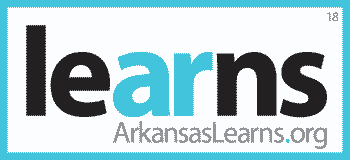Little Rock, AR—Before sixth grader R.J. Coleman came to Quest Middle School® of West Little Rock, he started a bank. R.J. did this through the EAST (Environmental and Spatial Technology) Initiative at his school, which gives students the opportunity to impact the community through special projects using technology tools. He and his team members collaborated with a local bank, built a kiosk, had tellers and handled real money.
This school year, after being approved by the Arkansas State Board of Education, sixth through ninth graders will have the same opportunity R.J. had at his last school to participate in the EAST Initiative at Quest Middle School. The school will receive a $100,000 grant to launch the program and will contribute another $25,000 to implement it fully. Chris Stevens, campus director, will administer the program, and Camie Woods will serve as facilitator.
“We are pleased to introduce our students to this project-based, service-learning program and believe it will have a positive impact on them,” said Christopher Stevens, director of Quest Middle School.
The EAST Initiative was developed to inspire students to brainstorm in new ways and impact the community around them. The program cultivates skills students might not otherwise have the chance to develop in a typical class setting, such as collaboration, using technology and civic engagement.
Through community work, the students will learn to apply their newfound skills in real-life, hands-on situations.
R.J.’s mother, Judy Coleman, said he is excited to be able to participate in the program again. “We are so thrilled with the program, it really helped his thirst for learning and for figuring things out,” she said.
She also said students learn to solve problems, share leadership roles, work with new technology, learn accountability, take ownership and handle adversity.
“The program helps children think outside the black and white concrete world, it helps them not just learn and memorize, but to look for issues, find solutions and implement those solutions. Our son learned he could be a public speaker, something he didn’t know before,” she said.
Josh Beauchamp, an EAST facilitator at Conwell-Egan Catholic in Pennsylvania, said that the EAST program has its challenges. “I have found that one of the largest challenges with EAST is encouraging students to break out of the expectations that the surrounding area has for them because of their age, their station, their religious association or whatever else gets in their way and make use of the resources in their communities to learn,” he said.
He finds the great benefit of EAST is that it gives students the time they do not have in other classes to focus and master the project. “This encourages kids to focus on process over product, which is where I think learning happens. Kids who are engaged in EAST learn how to think creatively, understand collaboration, manage projects, communicate effectively and become better citizens of the world,” he said.
In the EAST program, there is no teacher. The students direct themselves with the support of a facilitator. At Quest Middle School, which is run by charter operator ResponsiveEd ®, Camie Wood will take on the unique role of facilitator. While she has not yet participated in EAST, she has been following the program since she first heard of it 12 years ago. She will start training at the beginning of August to prepare her for the role.
Beauchamp says that the role of facilitator differs greatly from that of a teacher. “My job is to let the kids know that they can do good things, encourage them to cast aside the expectations of others, advocate for them inside and outside the classroom, make suggestions for their projects without ever actually telling them what to do, learn enough about the tech to suggest something, hold them accountable for what they are doing and encourage them to think of EAST as an opportunity to find and develop passions, not just a class to take,” said Beauchamp.
“The student and parent excitement is building, and we believe the EAST Initiative will allow our students to grow their potential and better equip them for their futures,” Stevens explained.
This modern educational model will give students the opportunity to improve their problem-solving abilities and to gain experience using high-end technology. Quest Middle School’s EAST students will identify a problem within their local community and work together to provide a solution. They will demonstrate teamwork, critical thinking, and innovation by building their solution.
The school will work through the summer break to make the necessary changes for an EAST classroom. Workstations will be built around the exterior walls and conference-style tables will be placed in the middle of the room for non-computer and collaborative work.
Quest Middle School of West Little Rock is run by charter school district Responsive Education Solutions® (ResponsiveEd®), which operates more than 70 public schools located throughout Texas and Arkansas, including Premier High SchoolsSM, Vista AcademiesSM, Founders Classical Academies®, Quest Middle Schools®, iSchool High® Schools, and Texas Virtual AcademySM.
ResponsiveEd’s mission is to provide hope to students through an innovative, character-based, personalized learning environment where they are academically successful and develop into lifelong learners.
ResponsiveEd schools are high-quality, free public charter schools that serve students on college preparatory tracks in grades K-12 and at-risk students in grades 9-12. To learn more, visit http://www.ResponsiveEd.com/impact.
